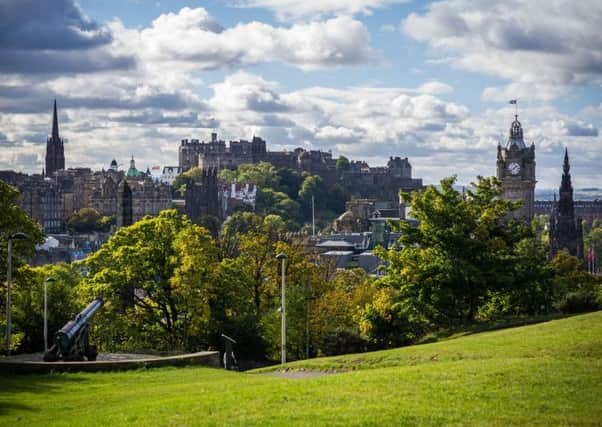Heritage site status ‘vital in boosting city economy’


Campaigners insist the coveted status, which was awarded by Unesco in 1995, attracts visitors, businesses and investment – and is a key part of the Capital’s £1.16 billion annual tourism economy.
The claims come as Unesco inspectors enter the second and final day of their “fact-finding mission” to assess the impact of recent developments on Edinburgh’s World Heritage Site.
Advertisement
Hide AdAdvertisement
Hide AdYesterday, three experts from the UK committee of the International Council on Monuments and Sites, which advises Unesco, took part in a series of meetings with key figures in the city’s planning world.
And today they are expected to visit the St James Centre and the old Royal High School – the sites of two planning applications at the heart of the current heritage row.
Adam Wilkinson, director of Edinburgh World Heritage (EWH), said the city’s prized status was used to “drive social, economic and environmental benefits for residents, businesses and visitors”.
He said the Unesco award was a “tool to support the city’s high quality of life for its residents, through improvements to the built and natural environment”, as well as a means of supporting local businesses.
He added: “Recent development proposals, such as those for the Royal High School, would, if permitted, have a negative impact on the key values that make Edinburgh a World Heritage Site, but it is a long road to losing that status.”
EWH revealed the World Heritage standing has opened up an extra £1.95 million in funding from Historic Scotland over the next three years.
Marion Williams, director of the Cockburn Association, said the status was something people had “worked hard” to achieve.
“People thought it was important,” she said. “It’s not just something where somebody turned up in Edinburgh and said, ‘Oh, this is pretty, let’s give it heritage status’.”
Advertisement
Hide AdAdvertisement
Hide AdBut Councillor Cameron Rose, previously a key figure on the city’s planning committee, insisted it “wasn’t crucial” to the Capital’s success.
He said: “Edinburgh is what it is and doesn’t need a seal of approval from Unesco, but it’s useful to have the status for marketing purposes.”
Only two areas have ever had their World Heritage status revoked – the Arabian Oryx Sanctuary in Oman and the Dresden Elbe Valley in Germany.
However, a source close to the heritage lobby in Germany admitted the Dresden decision had made little difference.
“In a big city like this, they almost did not notice,” he said. “It was more [about] the damage to the reputation of Germany and on a diplomatic level. For the city, it was really not so bad.”